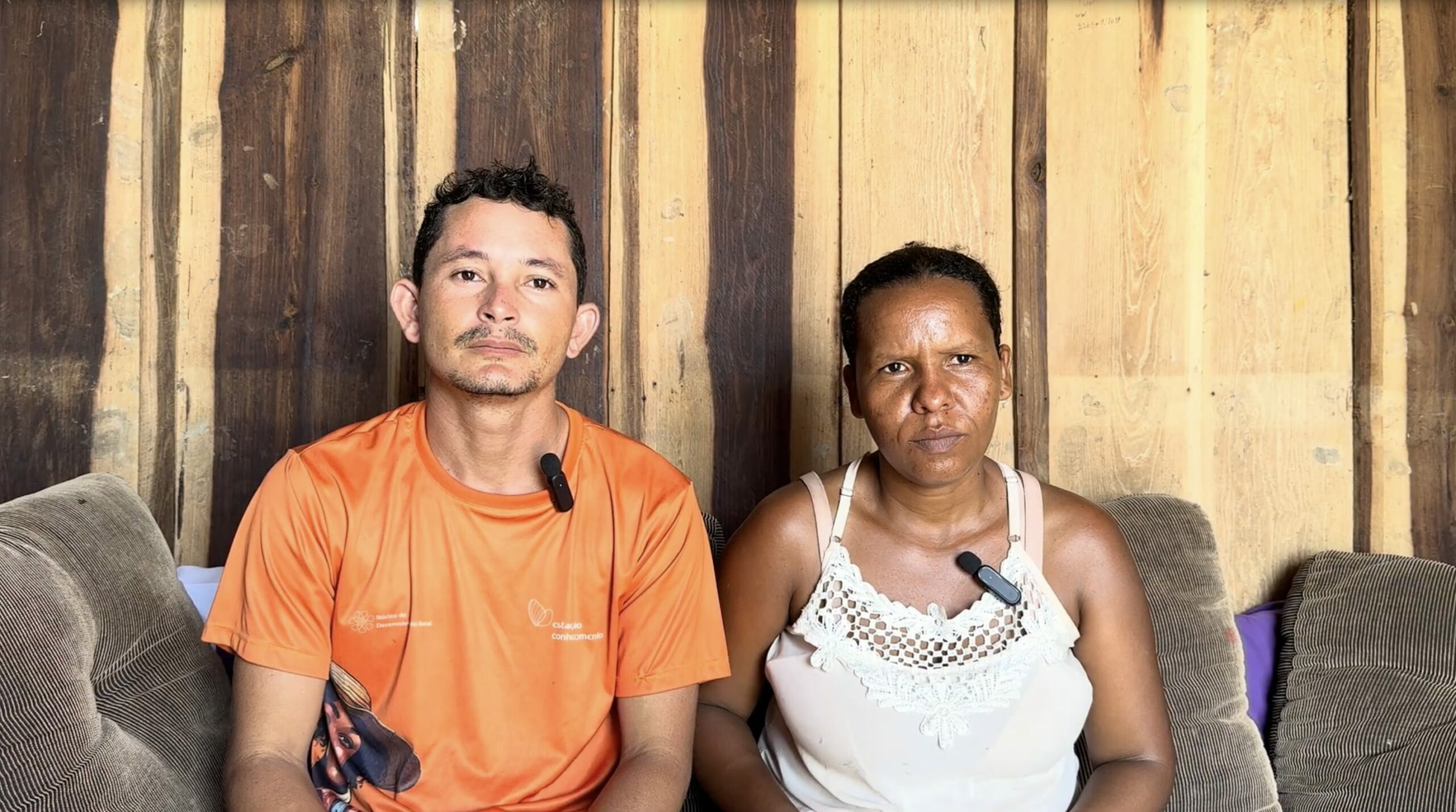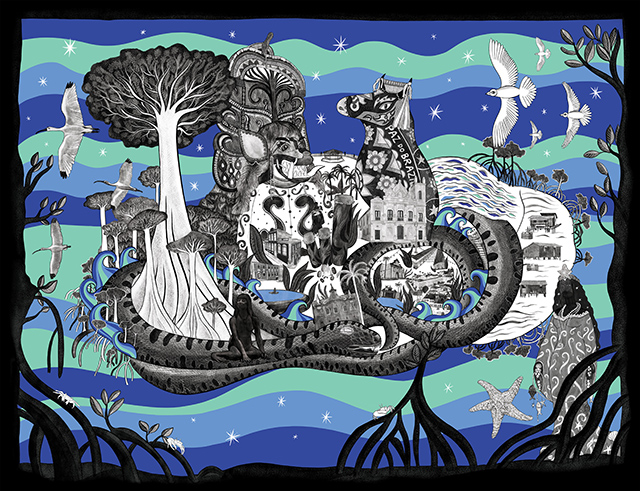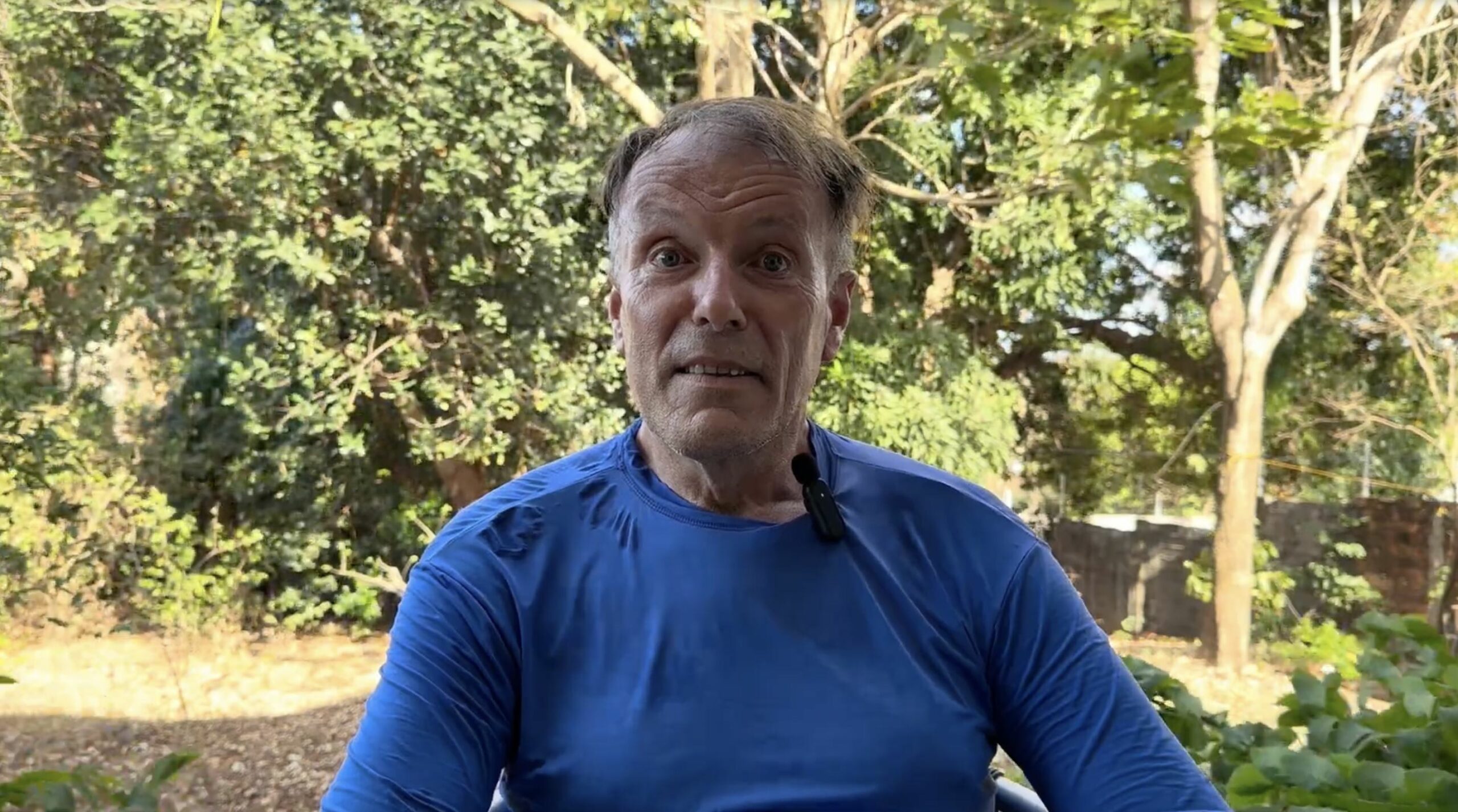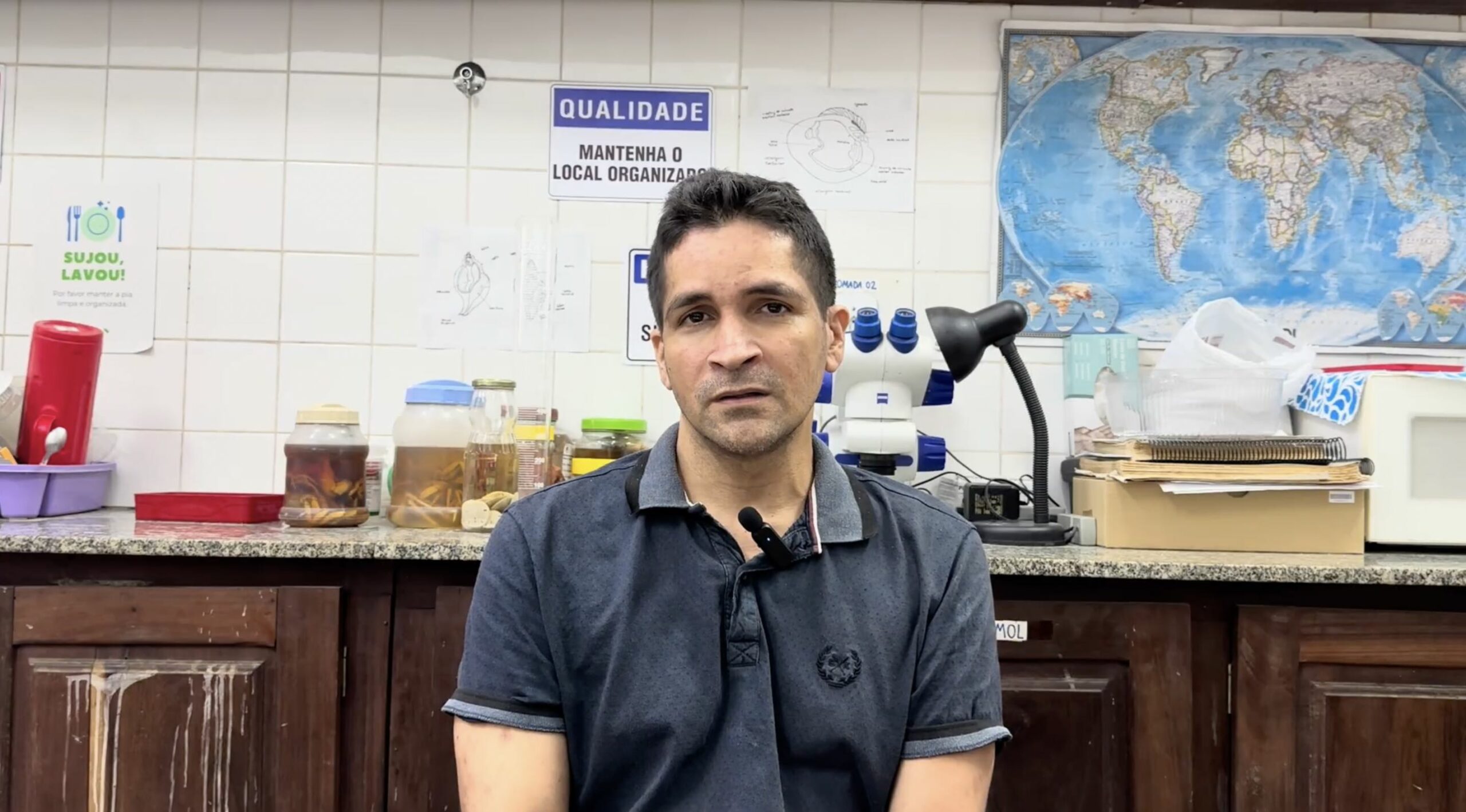
Tabocal, Maranhão – In this village on the banks of a tributary of the Amazon delta, ecological upheavals have become tangible for local fishermen and beekeepers. Adne, a housewife, and her husband Edinho, a fisherman, have been observing the combined effects of river siltation, deforestation and overfishing for several years.
Silting of the banks and expansion of mangroves
When asked about what she has observed over the years, Adne first points to the physical changes in the river:
‘I have seen the river silting up. The waves hit the banks, the ground collapses, and this causes silting.’ She notes that the sea water then rises deeper inland, altering the ecosystem: ‘This eliminates the native vegetation and gives rise to mangroves.’
Fishing is becoming increasingly difficult
On the fishing side, Edinho testifies to a radical change in practices and yields:
« In the past, we used very little equipment and fished a lot. Nowadays, you have to invest in a lot of equipment to catch the same amount of fish.‘
According to him, this decline in fish stocks is largely due to the use of unsuitable nets:
’Many fishermen fish illegally, using very fine nets. They catch the fish before they have had time to reproduce. ‘
He himself strives to adopt sustainable practices, but comes up against the logic of immediate profit:
’Sometimes we warn other fishermen, but greed is strong. By catching small fish, we earn more money in the short term. But if we continue like this, one day we won’t even have enough to eat. »
Beekeeping threatened by deforestation
Adne, who is mainly involved in educating children, supports her husband in a complementary activity: beekeeping.
She points out that honey production also depends on environmental conditions: The mangroves flower in summer. But there has been a decrease in pollen due to deforestation. This directly affects the health of the bee colonies and the amount of honey produced.
Thirty years of changes to the landscape and way of life
The couple recalls how the landscape and customs have changed in the space of a generation:
« The landscape has changed a lot with deforestation. It’s hotter than before. Thirty years ago, the river was the main means of transport. There were lots of boats. Since the road was built, there are none left.‘
Family stories attest to the scarcity of fish
’My father had two nets and caught 600 kg of fish. Today, you need five nets to catch the same amount. »
A transition to fish farming
Edinho, who comes from a family of fishermen, now envisages a different future. He is turning to fish farming:
‘I’m starting to work with native fish species: mandi, cará and freshwater shrimp.’
He justifies this transition by pointing to the declining profitability of small-scale fishing:
‘Today, it’s a lot of effort for very little return.’
The pororoca, a force of nature not to be underestimated
Finally, both men mention a spectacular natural phenomenon well known to the inhabitants of the delta: the pororoca.
‘The pororoca is a phenomenon that comes from the sea and, when it reaches the river, causes very strong waves.’
According to Edinho, six major pororocas occur each year, linked to the lunar cycles: ‘There’s one every month. But during the year, there are six that are really strong.’
Testimonies from the same panel


